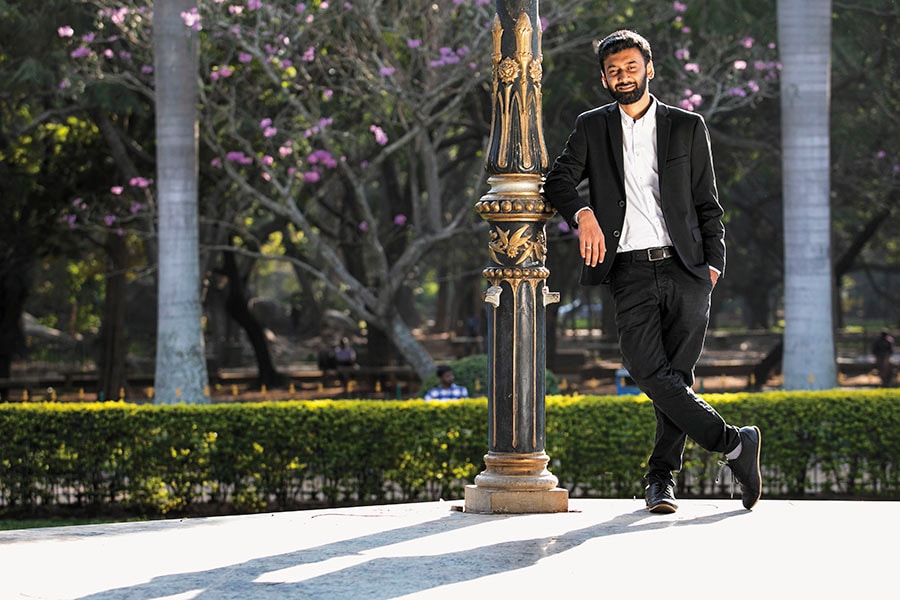
30 Under 30: Meet Shiva Nallaperumal, the man trying to leave an Indian imprint on typeface design
 Image: Selvaprakash Lakshmanan for Forbes India
Image: Selvaprakash Lakshmanan for Forbes India
Shiva Nallaperumal | 24
Type and Graphic Designer, Illustrator
Category: Design
As a child, Shiva Nallaperumal signed a pact with his father to choose books over video games. An early exposure to typography and visuals—in the form of comic books like Tintin, as well as political and autobiographical comics—stands him in good stead today.
At 24, Nallaperumal is the youngest Indian recipient of the SOTA (The Society of Typographic Aficionados) Catalyst Award. The prize recognises individuals, 25 years or under, who demonstrate significant achievement and future promise in the field of typography. Nallaperumal’s thesis project at Maryland Institute College of Art (MICA), USA, where he designed four typefaces, won him this honour in 2015.
“Typography, I discovered, is the basis of anything that we do, because more than anything else, on a day-to-day basis, we look at type. We are constantly reading on our phones, newspapers or our computer screens. Anything and everything is in text, so a type designer can influence the very basic communicative aspect of language with visual anecdotes,” says Nallaperumal, adding, “Type design is subliminal. The reader will know that something is comfortable to read but never know why.”
CLICK HERE TO VIEW THE FULL 30 UNDER 30 LIST
His interest in the communicative aspect made him leave a sheltered Chennai life and go on to study communication design from DJ Academy of Design on the outskirts of Coimbatore. He later did a masters in fine arts from MICA in 2015, where he was taught by graphic design stalwarts like Abbott Miller, Ellen Lupton and genius typographer Tal Leming.
In the same year in which he graduated from MICA, Nallaperumal did an intensive and productive year-long stint at the Indian Type Foundry, Ahmedabad, where he got an opportunity to work with the best type designers in the country, learning from them business as well as technical aspects.
“Shiva has a killer combination of being prolific and formally inventive, two qualities that don’t always go together in the world of type design. He metabolises influences from diverse sources, but always makes the work his own. His view on typography is global, polyglot, and fearless,” says Abbott Miller, partner at design firm Pentagram.
He is currently developing a pseudo-artificially intelligent typeface named Labyrinth (working title)—an experimental display typeface inspired by geometric kufic calligraphy (letters written in geomeric patterns)—as well as working on the creation of an archive to showcase “amazing Indian graphic design” from the past. “I am most interested in the Indianness of design, embracing our plurality, understanding an identity that is truly Indian.”

(This story appears in the 30 November, -0001 issue of Forbes India. To visit our Archives, click here.)




